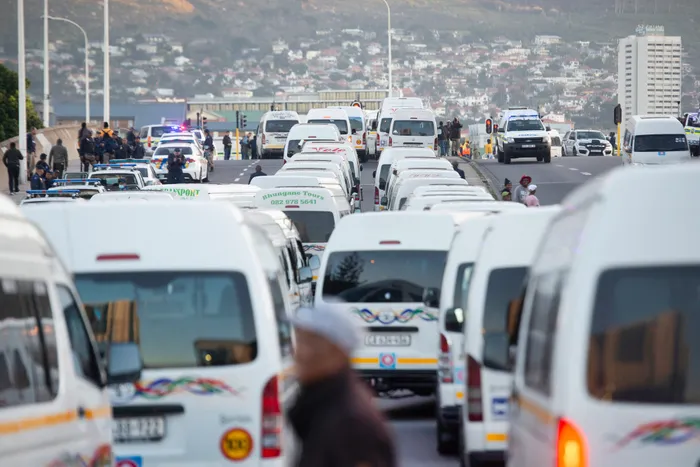Taxi strike will cripple already frail Cape Town public transport, warns Cape Chamber of Commerce

City law enforcement officers impounded 15 vehicles on Tuesday. Picture: Armand Hough / African News Agency (ANA)
With a taxi strike expected to bring the Western Cape to a standstill, the Cape Chamber of Commerce and Industry has called for calm, saying the City’s current ‘zero-tolerance’ approach needed to be tempered by appreciation of several major economic challenges facing taxi operators.
This comes as reports emerged that a meeting of taxi bosses resolved that all taxis withdraw their services following violent clashes with City law enforcement officers after 15 vehicles were impounded on Tuesday afternoon.
Drivers reported that there was a big operation by law enforcement that ended at the entrance to the station deck, where drivers who were inside the rank could not move out without going through a “checkpoint”. They accused safety and security mayco member JP Smith of being consumed with his own sense of power and privilege and a deep-seated hatred for the taxi industry, which he often brands as thugs, Mafia and criminals.
Smith dismissed the claims, saying the City has been inundated with complaints about public transport operators who did not adhere to the rules of the road – both from the public but also legitimate operators who were bullied and intimidated by illegal operators.
“We will not bow to intimidation by anyone who thinks that they have a right to break the law and not face the consequences.”
In a statement on Thursday, Cape Chamber of Commerce & Industry Deputy President Derryn Brigg said the escalating conflict between law enforcers and taxi operators threatened to compound transport problems at a time when most residents were already feeling financial strain. Taxis transport about 70% of people to work.
“We appeal to all stakeholders to commit to constructive dialogue aimed at resolving the impasse in the best interests of the society at large. As much as we all hate lawless taxis, a better understanding of the taxi industry will help devise more effective strategies to combat lawlessness. In our view, the City’s current zero-tolerance approach needs to be tempered by appreciation of several major economic challenges facing taxi operators,” said Brigg.
She said there was an urgent need for constructive dialogue to avoid unnecessary violence and disruption to public transport, given the current harsh economic climate.
“In recent years, the taxi sector has been caught in a perfect storm of rising costs, particularly fuel and vehicle financing. During Covid lockdown, the sector lost its customer base, and many owners have yet to recover. The sector also does not enjoy the subsidies afforded to bus companies. All of this means the industry’s stresses are valid and need to be carefully considered. Most taxi operators are simply trying to earn a living, often wrongly associated with rogue individuals who damage public property and engage in acts of intimidation.”
Related Topics: